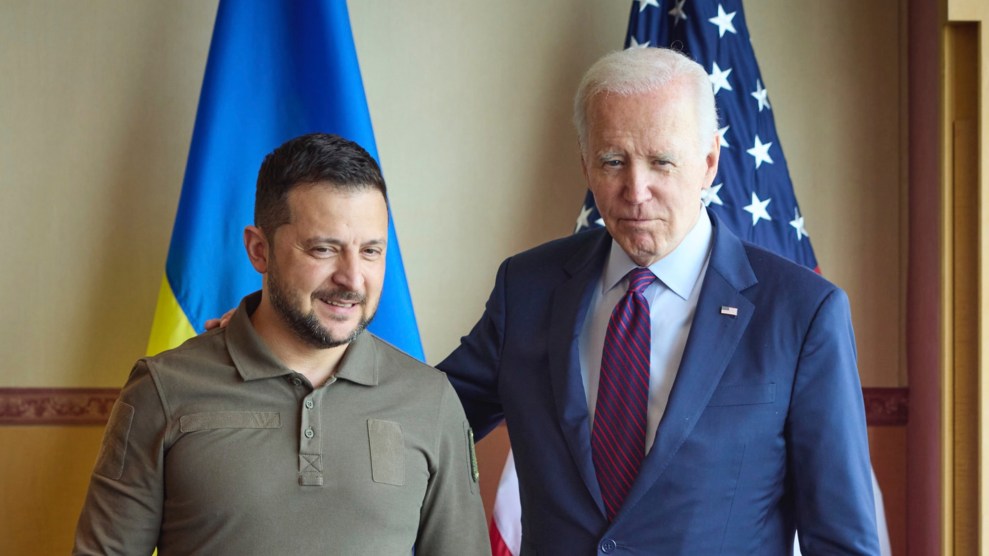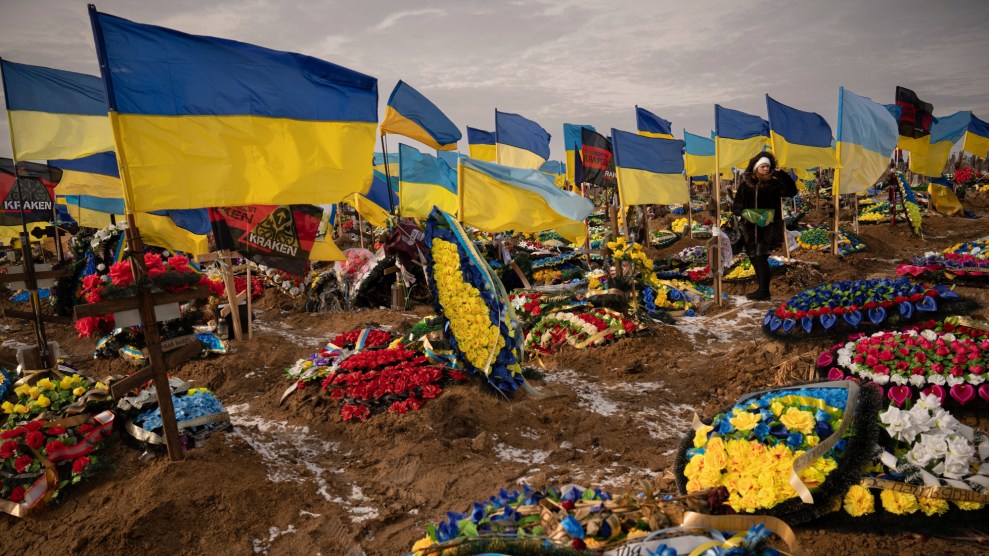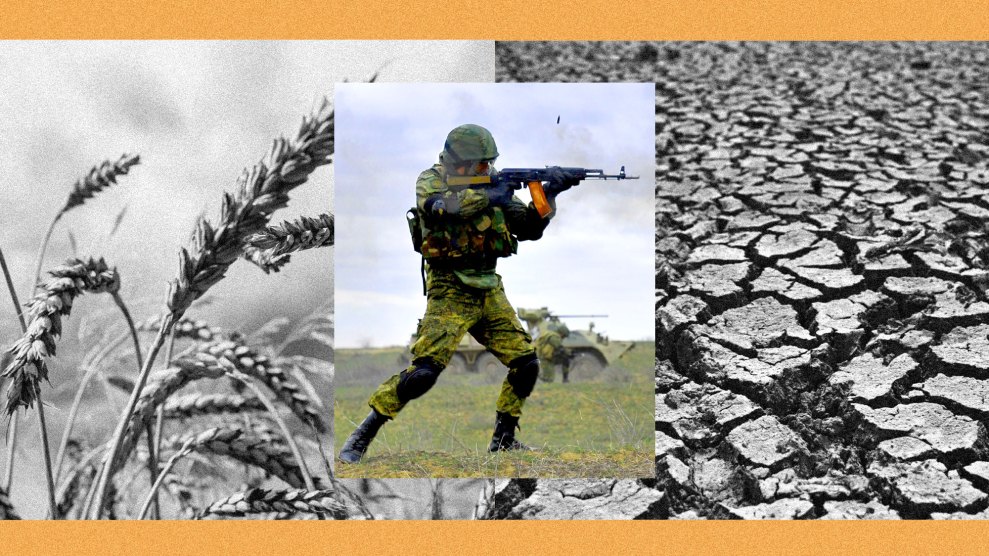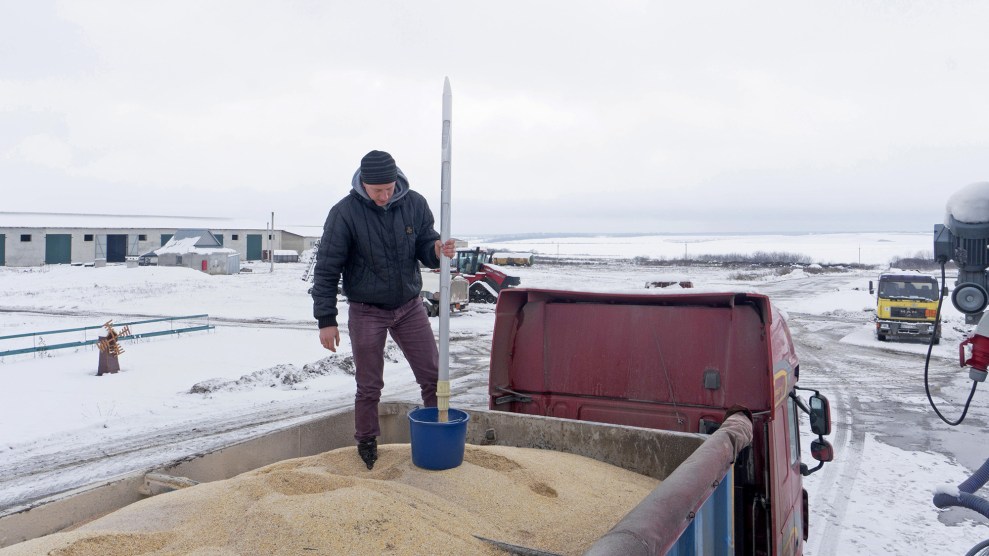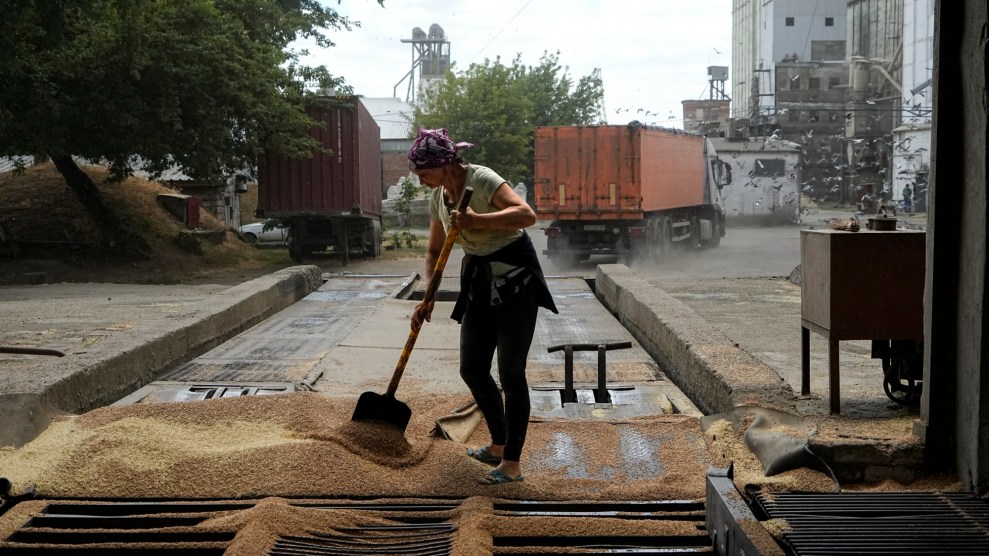
A worker cleans grain after trucks unloaded in a grain elevator in Melitopol, Ukraine.AP
In July 2022, the United Nations and Turkish President Recep Tayyip Erdogan helped broker the Black Sea Grain Initiative: A deal between Russia and Ukraine that the UN Secretary-General António Guterres called “a beacon of hope.” It allowed food and fertilizer exports from three Ukrainian ports—on the Black Sea, Odesa, Chornomorsk and Yuzhny/Pivdennyi—to be shipped to the rest of the world. Since the agreement was signed last year, 32.8 million tons of Ukrainian grain have been exported; more than half has gone to developing countries, including drought-ridden East African nations like Ethiopia, Kenya, and Somalia.
This week, that deal ended. And it soon got worse. After pulling out of the deal, Russia attacked storage facilities in the coastal city of Odesa, reportedly destroying 60,000 tons of grain, according to Ukrainian Agriculture Minister Mykola Solskyi. Both nations say that they will now treat each other’s ships traveling across the Black Sea as potential military targets.
The end of the deal, and the bombings, could be a major blow to the global food supply. As my former colleague Tom Philpott wrote in March 2022, the Russia and Ukraine war is being fought in the world’s breadbasket:
Today, Russia is a global wheat powerhouse, the world’s number-three producer of the staple crop, and its number-one exporter. Just as in 1768, much of its most productive farmland lies east of the Ukraine border, making it largely reliant on the same “black paths” (now covered in paved roads and railroad tracks) to reach markets. Ukraine, too, is a major wheat exporter, and has recently emerged as a corn powerhouse, too, supplying China and its booming meat industry with nearly a third of its feed corn imports.
What does it mean when a war of conquest descends upon one of the globe’s great breadbaskets in the 21st century? With trade routes embattled and markets roiled by Russia’s invasion, wheat prices have already shot up to their highest level in 60 years. This far exceeds the spike of the early 2010s, which led to bread riots in the Middle East that helped bring about the Arab Spring and the still-simmering civil war in Syria. “It’s a core food,” Nelson says, “and when you double its price, it just changes everything.”
Looking forward, there is another risk of a major uptick in prices. It is also a chance for Russia to push its influence. Already, the nation has offered itself as an option to African nations unable to rely on Ukraine.
Russian spokesperson Dmitry Peskov said that the decision to pull out of the deal was made because the United Nations and Western countries supporting Ukraine had not held up their side of the bargain. Peskov claimed there were still obstacles to Russia exporting its own agricultural goods. “It has stopped. The grain deal has stopped, as soon as the Russian part is completed, the Russian side will immediately return to the implementation of this deal,” he said.
On Monday, Secretary-General Guterres condemned Russia’s decision and said he was “deeply disappointed,” and that the agreements had “helped to reduce food prices by over 23 percent since March last year.” Guterres also noted a letter he sent to Putin that emphasized the progress made on Russian exports, and urged him to “keep the Black Sea Grain Initiative alive.” Days before they pulled out, Vladimir Putin said that while he believed Guterres was negotiating in good faith, he did not believe that Western countries were “going to fulfill their promises.”
“Looking ahead, our goal must continue to be advancing global food security and global food price stability,” Guterres continued. “This will remain the focus of my efforts, taking into account the rise in human suffering that will inevitably result from today’s decision.”

